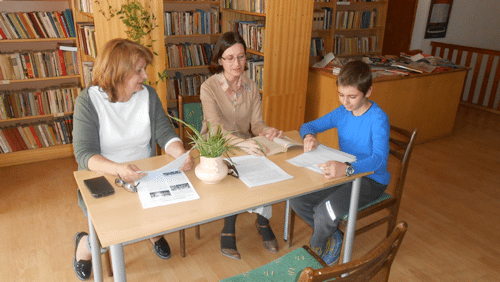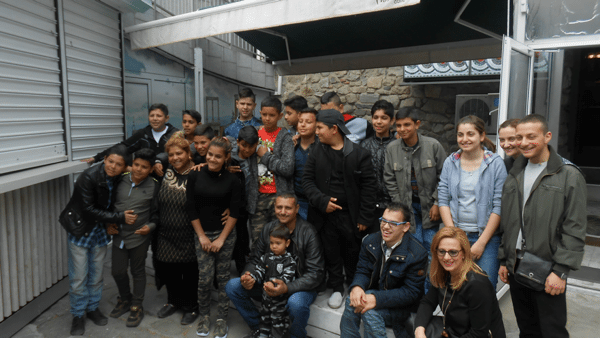Impact Grants
Return to Impact Grants
Introduction in Porajmos History and the Universal Declaration of Human Rights
Petar Gramatikov, Plovdiv
The project, developed by Petar Gramatikov in Plovdiv, helped students learn about Social Justice and Porajmos (the Holocaust for Roma). Along with the training, more than 1500 brochures about the Genocide of the Roma during the Second World War (Porajmos) were distributed in Plovdiv. The main goal of the project was to raise awareness about Porajmos, also referred to as Forgotten Holocaust, and to provide inspiration for mutual understanding and tolerance. The participants were informed about the extraordinary example of the power of civil society in Bulgaria during the Second World War and the salvation of the Bulgarian Jewish (50,000) and Roma (148,000) compatriots and were motivated to keep and promote ethnic and religious tolerance and mutually beneficial coexistence in the 21st century.
The training was held at the Trakart Cultural Center and Museum in Plovdiv. Twenty children at age of 10-12 from Stolipinovo neighborhood together with three young volunteers took part in the training. Participants learned about the Roma genocide and about human rights – what they are and how they can be promoted and protected.
Additionally a presentation with an open discussion on the same topic took place at “Aleko Konstantinov” Lyceum for Ph.D. students and professors from the Faculty of Philosophy, Plovdiv University.
The project was a pilot program, involving a small group, but it had a remarkable effect. The involvement of volunteers and students was very useful because a team of activists was formed in order to assure that the main results of the training will be multiplied by all the participants becoming “ambassadors” of human rights. Two organizations, Innovations and Sustainability Academy, and Bridges, decided to prepare certificates for all the participants (certificates for “Human rights ambassadors” in the project) which were given in an official ceremony where opportunities for continuation of the contacts were discussed.
The brochure we distributed in the town was of great interest to people because it was very different than usual advertisements and invitations, without any obligations or engagements but provoking thoughts on the history and the link to the present.


